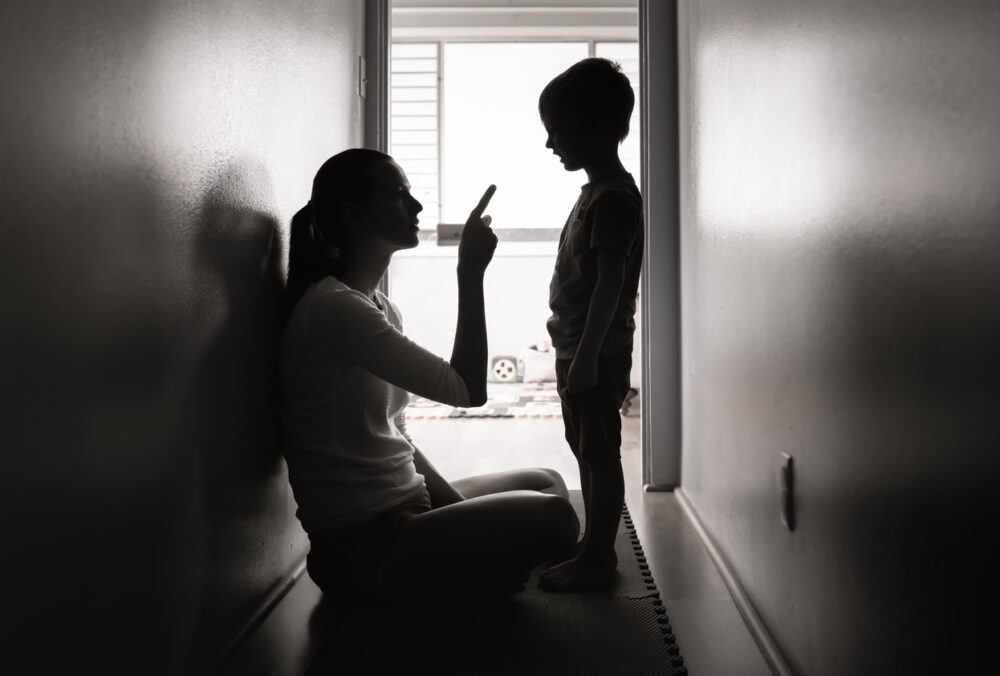Some traditions raised us right—others just raised our anxiety.

There’s something oddly comforting about the way our parents used to say, “Back in my day…” followed by a rule that made us roll our eyes or quietly rebel. Those old-fashioned family rules were meant to shape us into polite, responsible, and well-behaved adults. But as the world changed, many of those rules stayed stuck in a time that doesn’t quite fit anymore. The things that once made sense in a smaller, slower world now feel out of touch, unnecessary, or even harmful.
Families evolve, and so should the rules that govern them. Sticking to outdated expectations can create unnecessary tension and send messages that no longer align with the way relationships, emotions, and individual growth actually work. Today’s kids are navigating a different kind of world—one that requires more emotional flexibility, openness, and understanding than rigid old systems allow. So maybe it’s time to question a few of the old rules we’ve blindly followed for decades. These 11 need a serious rethink.
1. Children should be seen and not heard.

This one was a classic in many households, especially during adult conversations or at formal events. Kids were expected to be quiet, sit still, and not interrupt. It wasn’t just about manners—it was about obedience and knowing your place in the family hierarchy. While this rule may have made dinners a bit more peaceful, it sent a strong message that children’s thoughts and feelings didn’t matter as much as those of adults, according to Anna F at Bright Side.
That kind of messaging lingers long after childhood. It teaches kids to suppress their voices, hold back questions, and prioritize silence over participation. In today’s world, we want children to speak up, express themselves, and be emotionally literate. Encouraging dialogue and curiosity builds confidence and better communication skills. Making space for their voices doesn’t mean losing control—it means raising people who know how to speak up when it really counts.
2. Respect your elders no matter what.

Respect is important, but blind loyalty to anyone just because they’re older can set a dangerous precedent. This rule has been used to silence kids, ignore bad behavior, and maintain unhealthy power dynamics, as reported by Clover Stroud at The Guardian. If a grandparent is cruel or a teacher behaves inappropriately, the old rule says to just keep your head down and show respect anyway. That kind of blanket obedience doesn’t protect kids—it puts them at risk.
What we really want to teach is earned respect and mutual understanding. Elders can absolutely be wise, kind, and worth listening to—but age alone shouldn’t be a pass for bad behavior. Encouraging kids to question authority when something feels off helps them set boundaries, speak up for themselves, and navigate complex situations with a stronger moral compass. Respect should go both ways, regardless of age.
3. Finish everything on your plate.

This rule started during times of scarcity, where wasting food was not only frowned upon—it was morally wrong. Parents meant well, trying to teach gratitude and discipline. But over the years, this rule turned into a guilt trip that encouraged overeating, ignored hunger cues, and created weird emotional relationships with food, as stated by Kevin Sean at DARTA. For many, it became the first introduction to diet culture.
In today’s world, we know more about intuitive eating and the importance of listening to your body. Teaching kids to eat until they’re full—not stuffed—promotes healthier habits. It’s okay to save leftovers, throw out scraps, or say no to seconds without a side of shame. Food isn’t a punishment or a moral test—it’s nourishment. Encouraging mindful eating sets the stage for lifelong health without the baggage.
4. No talking back to adults.

This rule usually came down hard and fast—if you disagreed, questioned, or even clarified something, it was labeled “talking back.” It taught kids that challenging authority was disrespectful, even when done calmly or thoughtfully. The result? A lot of kids who learned to stay quiet when they felt misunderstood or mistreated, afraid of punishment for speaking up.
But there’s a big difference between rudeness and assertiveness. Encouraging kids to voice their opinions or explain their point of view helps them grow into adults who advocate for themselves. The key is teaching tone and timing, not silence. Allowing respectful disagreement builds emotional intelligence and trust. It turns everyday moments into practice grounds for real-world communication skills—ones that won’t get them steamrolled later in life.
5. Boys don’t cry.

This rule may not have been written on a plaque, but it was implied constantly. Boys were expected to be strong, stoic, and tough—emotions were seen as weakness. This pressure to suppress feelings creates emotional bottlenecks, stunted vulnerability, and men who struggle to express anything beyond anger or apathy. It’s damaging, not just to boys, but to the people who care about them.
We now know that emotional expression is not a gendered trait—it’s human. Teaching boys to cry, talk about fear, or admit when they’re overwhelmed doesn’t make them weak. It makes them self-aware, compassionate, and healthier in their relationships. Dismantling this old rule opens the door to deeper connections and fewer emotional breakdowns later in life.
6. You live under my roof, you follow my rules.

This one hits like a gavel. It’s the ultimate parental power statement, often used to shut down negotiation or enforce total control. While structure and boundaries are essential, this rule can feel more like a threat than guidance. It leaves no room for conversation, nuance, or understanding—especially for teenagers figuring out independence.
What works better is a collaborative approach. Yes, parents are in charge, but that doesn’t mean kids shouldn’t have a voice in how the household runs. Inviting input on rules or consequences teaches responsibility and respect on both sides. When kids feel heard, they’re more likely to follow through. The house still runs smoothly—but without the resentment.
7. Keep it in the family.

This rule taught kids to never talk about family issues outside the home. It was about privacy, pride, and control—but it often meant hiding serious problems, enduring abuse, or shouldering adult-level secrets. Kids learned to stay silent even when they desperately needed help, believing that loyalty mattered more than truth.
We need to let go of this one for good. When kids feel unsafe, confused, or overwhelmed, they should be encouraged to reach out to trusted adults, counselors, or teachers. Silence doesn’t protect families—it isolates children. Being open about struggles isn’t a betrayal; it’s often the first step toward healing. The stronger families are the ones who admit what’s wrong and get the help they need.
8. Family comes first, no matter what.

On the surface, this rule sounds noble. Family loyalty is beautiful—until it becomes a burden. Forcing kids to prioritize relatives who treat them poorly, or tolerate toxic behavior just because “they’re blood,” sends the message that their well-being doesn’t matter as much as appearances or tradition. It can also trap them in cycles of guilt, obligation, and codependency.
Teaching kids that their emotional health matters—even in family dynamics—is crucial. Love should never require suffering. Sometimes the healthiest choice is to create distance or set limits, even with close relatives. That doesn’t mean family doesn’t matter. It means family shouldn’t get a free pass to hurt you and stay in your life unchecked.
9. Don’t air your dirty laundry.

This one often overlaps with “keep it in the family,” but it’s broader—it says never let anyone see your struggle, even friends or support systems. It promotes shame and secrecy over honesty and vulnerability. This rule trains people to smile through pain, hide problems, and pretend everything’s fine when it clearly isn’t.
It’s okay to be private, but not at the expense of your mental or emotional health. Being honest about your experiences with people you trust builds connection and breaks down isolation. Vulnerability isn’t weakness—it’s the root of authenticity. Encouraging open, honest sharing helps kids build better support networks and deeper relationships that can carry them through hard times.
10. Apologize, even if you’re not sorry.

This rule was used to teach politeness, but it often backfired. Kids were told to say sorry to avoid conflict or “keep the peace,” even when they didn’t understand what they’d done wrong—or hadn’t done anything at all. It turned apologies into empty gestures and reinforced the idea that feelings should be faked to maintain harmony.
Real apologies come from understanding, not obligation. Teaching kids to reflect, empathize, and apologize when they genuinely feel remorse builds emotional maturity. At the same time, they should never be forced to say sorry just to smooth over tension or protect someone else’s ego. It’s okay to stand firm in your truth when you’ve done nothing wrong.
11. You owe your parents everything.

This rule is often passed down with heavy emotional weight. Parents sacrifice, provide, and work hard—but expecting lifelong emotional or financial debt in return turns love into a transaction. Kids who grow up under this belief often feel obligated to please their parents at the cost of their own dreams, peace, or autonomy.
Gratitude is beautiful when it’s mutual and free. Kids should appreciate what their parents have done, but not feel shackled by guilt or obligation for the rest of their lives. Healthy relationships grow from choice, not duty. Letting go of this rule helps everyone breathe easier and relate to each other as people—not roles tied up in debt.
